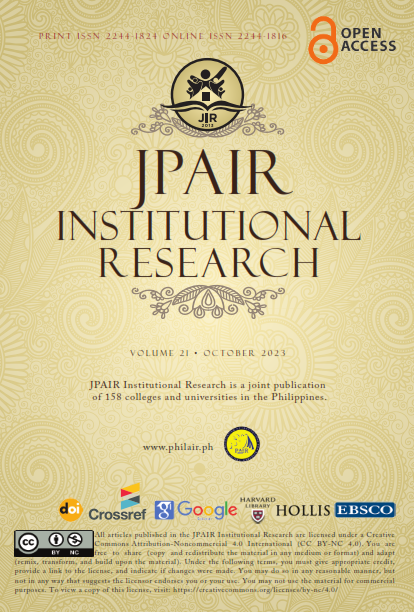Pedagogical Effectiveness of GMRCE Learning Model in Strengthening Learning Attitude in Gas Laws
DOI:
https://doi.org/10.7719/854Keywords:
Science Education, pedagogical effectiveness, GMRCE learning model, learning attitude, gas laws, quantitative, PhilippinesAbstract
Science education is plagued by challenges, with students complaining about the learning process and teachers expressing exhaustion among students. The study investigated the pedagogical effectiveness of the modified processes of Gamification, Modeling, Rewarding, Cognitive Teamwork, and Explicit Timing (GMRCE) Model in strengthening students’ learning attitude in Gas Laws among Grade 10 Science students at Pangdan National High School during the School Year 2022-2023. The study utilized a pretest-posttest, comparison-group true-experimental design, measuring conceptual understanding through a three-tier 15-item test and assessing mathematical skills through a four-item word problem test. Descriptive-correlational research is designed to analyze personal profiles, including age, sex, academic performance, attitude toward science, proficiency level, and acceptability. Results showed that students with positive attitudes toward science achieved favorable academic performance, and the GMRCE Learning Model effectively improved students’ learning attitude in Gas Laws, which was deemed moderately acceptable, indicating a high satisfaction rating. The study suggests that teachers should use strategic learning models to encourage active participation and improve academic performance. A replicated study involving a larger group of participants may be conducted in other schools, and a qualitative approach may be integrated to validate the findings.
References
Al-Hadrami, A., & Morris, D. (2014). Accounting students’ performance in web-based courses: the Hashemite University of Jordan case. World Revie of Business Research, 4(1), 19-35.
Banilower, E. R., Trygstad, P. J., & Smith, P. S. (2015). The first five years: What the 2012 national survey of science and mathematics education reveals about novice science teachers and their teaching. In Newly hired teachers of science (pp. 1-29). Brill.
Dinglasan, B. L., & Patena, A. (2013). Students performance on departmental examination: Basis for math intervention program. University of Alberta School of Business Research Paper, (2013-1308).
Downloads
Published
Issue
Section
License
Copyright (c) 2023 Edison L. Uy

This work is licensed under a Creative Commons Attribution-NonCommercial 4.0 International License.
Open Access. This article, published by JPAIR Multidisciplinary Research, is licensed under a Creative Commons Attribution-Noncommercial 4.0 International (CC BY-NC 4.0). You are free to share (copy and redistribute the material in any medium or format) and adapt (remix, transform, and build upon the material). Under the following terms, you must give appropriate credit, provide a link to the license, and indicate if changes were made. You may do so in any reasonable manner, but not in any way that suggests the licensor endorses you or your use. You may not use the material for commercial purposes.












